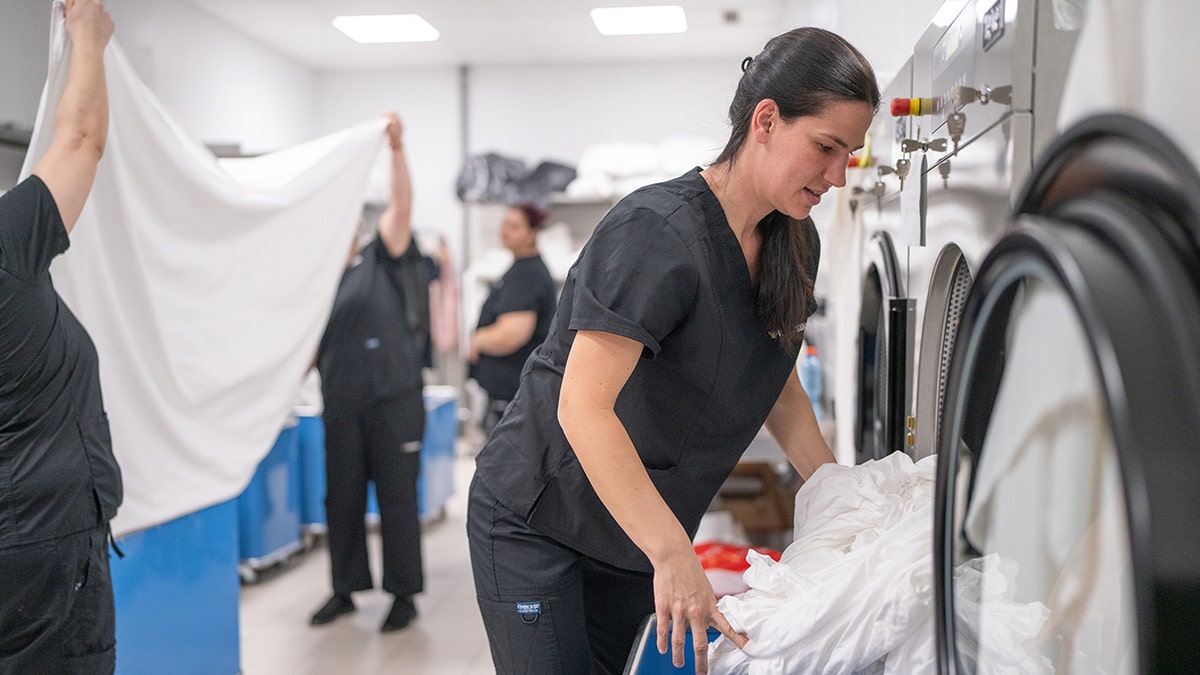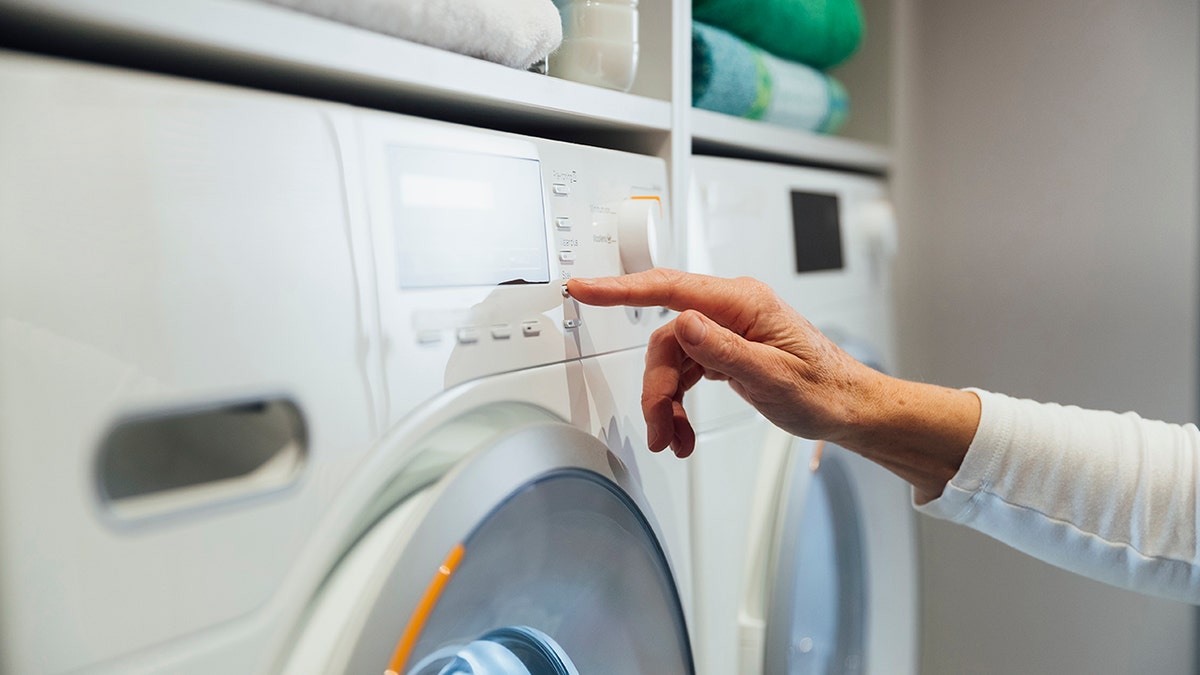Toss a burden at home at home seems common and innocent.
However, healthcare professionals who were washing their work uniforms at home can unknowingly spread superbugs, a new survey has shown.
In a study by a public university in England de Mont Fort University Lister Professor Katie Layard, the home washing machine tested the home washing machine and found that the machines failed to remove potentially harmful ingredients, even after running a hot water setting equivalent to 140 degrees Fahrenheit.
Shampoo is remembered for bacteria contamination that can cause infection
“Our research highlights that healthcare can not consistently eliminate the harmful bacteria with antibiotic-resistant bacteria in healthcare textiles,” Laward Fox told News Digital.
The team has tested six different models of the washing machine so that they have cleaned the contaminated fabric with bacteria that can cause different types of health conditions.
According to a new study, healthcare professionals who wash their work uniforms at home can unknowingly spread superbags, a new survey has shown. (Estock)
Half of the machine did not disinfected during the quick cycle – when one -third of them failed to clean adequate amounts during the standard cycle.
The search for the expansion of antimicrobial resistance (AMR), especially in communities and hospital settings, especially in the settings of the school of the school of the school and the head of the infectious disease research group of the University of the School of Pharmacy, especially the expansion of the home health care uniforms, “This is the search for” this search. “
An ordinary killer bug is endangering the Americans: ‘Simplify the epidemic’
Also, this means home washing machines are a center of antibiotics-resistant bacteria.
Domestic detergents can even produce antibiotics-resistant strains of bacteria, according to the layard.
Even if healthcare workers follow all the washing guidelines, the study does not reach half the machine at the right temperature, the study has shown.

Healthcare professionals and their institutions should be considered re -evaluating policies that allow workers to wash work clothing at home, saying that a new study is a professor of microbiology supervising a new study. (Estock)
“This means that even if healthcare workers follow all the guidelines to wash their uniforms domestically, they will still not reach the disinfectant level needed to remove all pathogenic bacteria,” Professor said.
Possible constraints and amendments
The study was conducted with non-health services staff, so the bacteria of clothing can be different from their clothing.
The new class of antibiotics has been discovered: ‘committed answer’
Probably, however, will see “high levels of high levels of health care workers” pathogenic and antibiotic resistant strains, “said professor.
Layard recommended that healthcare professionals and their institutions re -evaluated policies that allow workers to wash their work clothing home.
For more health articles, see www.foxnews.com/health
“Applying in-house laundering to healthcare facilities or external industrial laundry will increase the infection control system,” he said.

Half the machine did not sterilize the clothing during the quick cycle, while a third of the standard failed to clean enough in the standard cycle. (Estock)
According to the survey, the research team advises to use a disinfectant for washing machines at least once a month because the at-home machines are not working.
Click here to sign up for our health newsletter
They suggested an empty wash on the machine to disinfect it at a temperature of approximately 194 degrees Fahrenheit.
“For people at home, it is important to comply with the guidelines suitable for people at home, for people at home, to reduce the risk.”
Click here to get Fox News app
The team also says that effective laundering practices are an important component, but they should be part of a versatile approach.
Should include them[e] He said “intelligent antibiotics about hygiene practice and antimicrobial resistance, strong infection control system and public education,” he said.
Leave a Reply